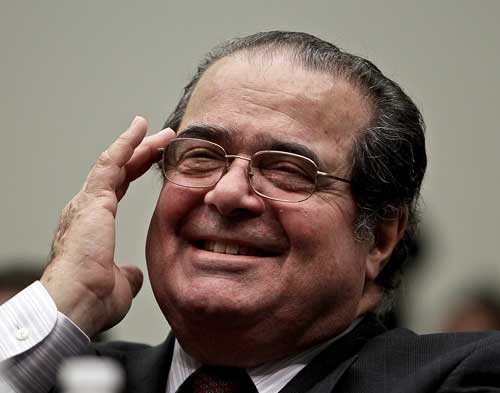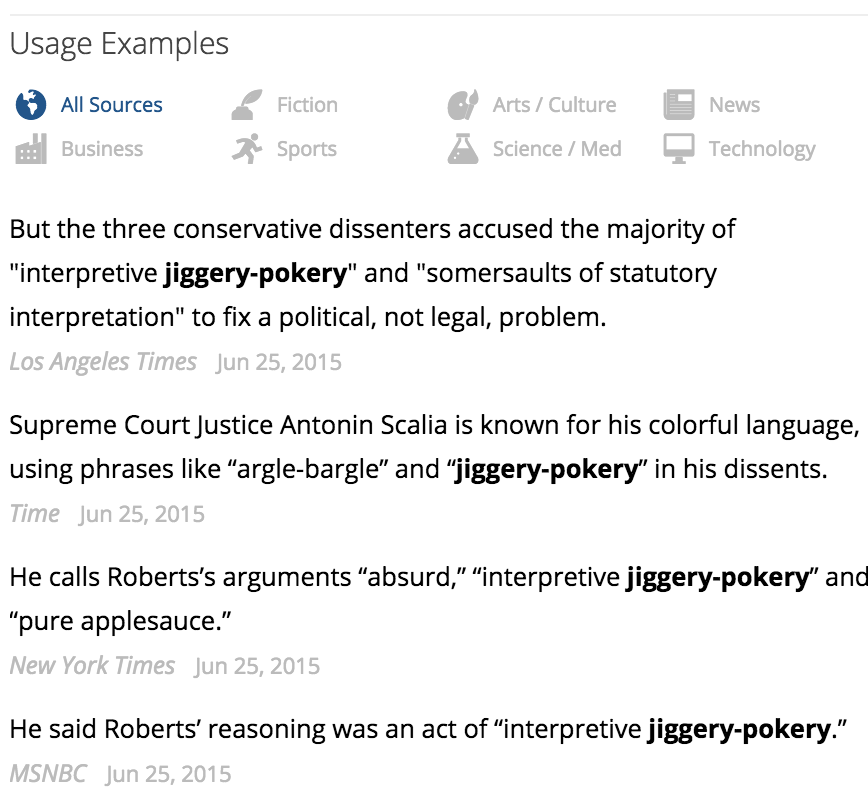
The Supreme Court has issued a decision on the constitutionality of the Affordable Care Act, and as significant as that may be, as vocabularians, we can't get past the sighting of jiggery-pokery in Justice Antonin Scalia's dissenting opinion.
This is not Scalia's first time deploying archaic and somewhat off-the-wall vocabulary. We've written about Scalia and choate, Scalia and "parade of horribles," and Scalia and "legalistic argle-bargle."
Now, Scalia references are lighting up the usage tracker on the jiggery-pokery page in our dictionary as journalists and commentators react to this rare lexical event.
Here's Katy Steinmetz of TIME on Scalia's choice of words this time.
If you’re not familiar with the term, Jiggery-pokery dates back to at least the late 1800s, a rhythmic English phrase describing dishonest manipulation or nonsense, akin to hocus pocus, humbug, bambosh, baloney, berley (among the Australians), bunkum, hogwash (also known as eyewash), flapdoodle, flim-flam, flumadiddle, rubbish, galbanum (coming from a French word for empty representations), hooey, hot air, motormouthing, poppycock or malarkey, as Joe Biden is wont to say.
Editors at the Oxford English Dictionary traced this particular phrase back to the Scottish word jouk, which means to skillfully twist one’s body to avoid a blow—to manipulate oneself like an acrobat. Scalia, in this case, insinuates that his colleagues bend themselves and dissemble in order to work around the truth by misinterpreting words of the law.
Among the Scots, the word jouk led to the notion of joukery or jookery to describe underhanded dealing or trickery. Pawky is another Scottish word, meaning artfully shrewd. A pawk, on its own, is a trick. And by 1686, some inventive Scottish speakers had combined the words in the phrase joukery-pawkery, which they used to refer to clever trickery or sleight of hand…
Just as when Sen. Ted Cruz used the word “squish” to insult his rivals, Scalia’s dissent is a reminder that a life in government needn’t be lived while only using serious sounding words. Politicians can, after all, be fairly called snollygosters and quockerwodgers who flip-flop and kick tires—or, as Scalia might say, flapdoodlers who deceive themselves and others with their jibber-jabber.
Read the entire TIME piece here.

